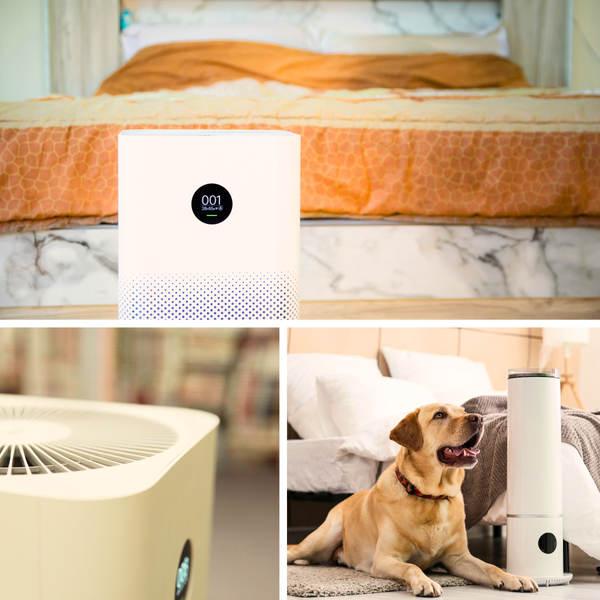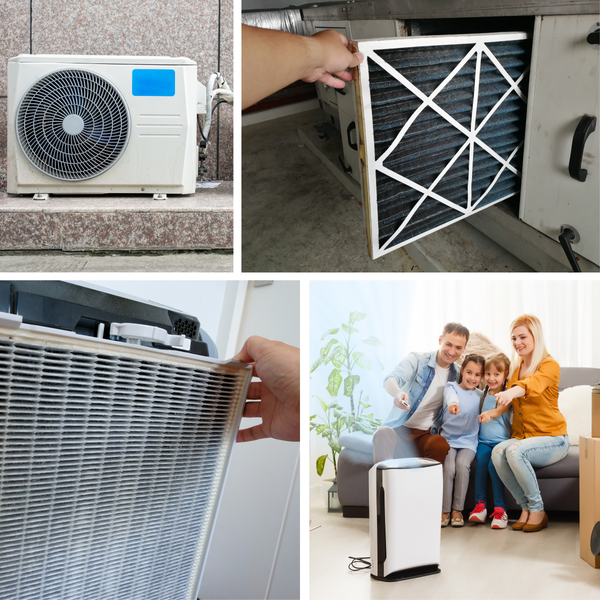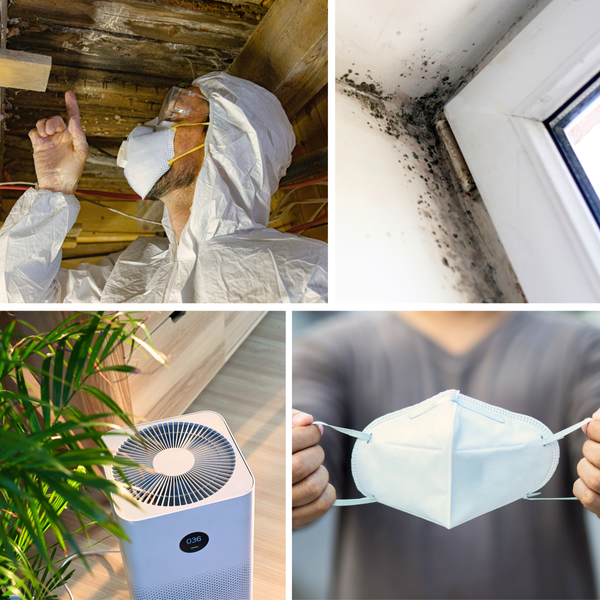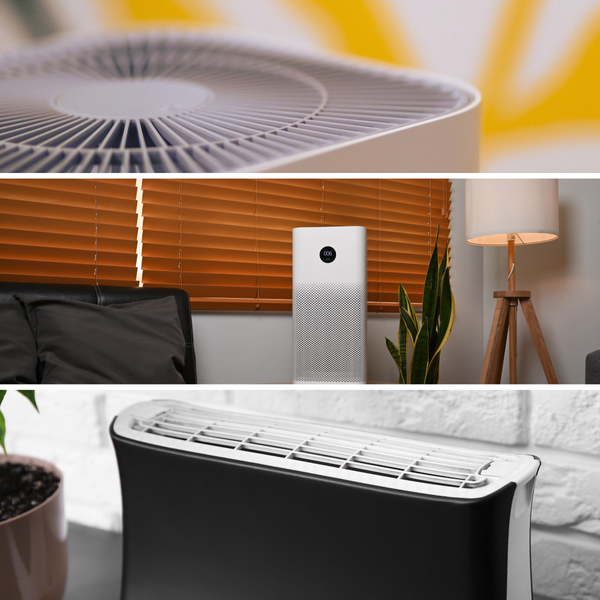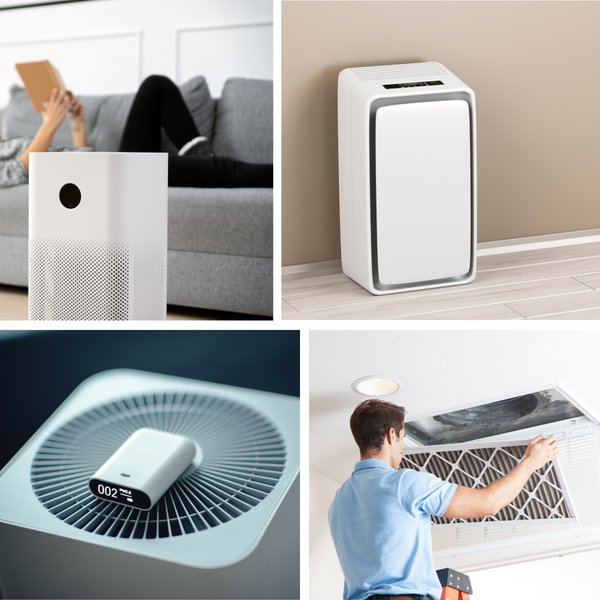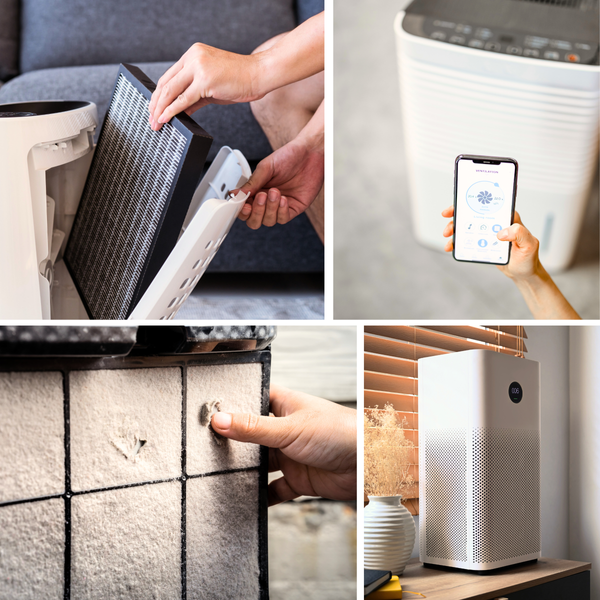Key Takeaways:
- In-home air purifiers can significantly reduce airborne pollutants, including dust, pollen, and smoke particles, when used correctly.
- HEPA filters in air purifiers are highly effective at capturing fine particles, thus improving indoor air quality.
- While air purifiers can help alleviate allergy and asthma symptoms, they should be part of a broader approach to maintaining clean indoor air.
Indoor air quality is a concern for many, especially those suffering from allergies, asthma, or other respiratory conditions. With the promise of creating a cleaner living environment, in-home air purifiers have surged in popularity. But the question remains: do in-home air purifiers really work? This article delves into the effectiveness of these devices, the science behind them, and practical considerations for those looking to improve their indoor air quality.
Understanding Air Purifiers and How They Work
Air purifiers are designed to clean the air in a room by removing contaminants. They work by drawing air through a series of filters that capture particles in the air. The most common type of filter used in these devices is the High Efficiency Particulate Air (HEPA) filter, which is capable of removing fine airborne particles such as dust, pollen, mold spores, and pet dander.
The Science Behind HEPA Filters
HEPA air purifiers operate on the principle of interception, impaction, and diffusion to filter particles. These filters are composed of a dense mat of fibers that capture particles as air flows through them. To meet the true HEPA standard, a filter must remove 99.97% of particles that are 0.3 microns in diameter from the air that passes through.

The Role of Air Flow in Air Purifier Effectiveness
The effectiveness of an air purifier is also dependent on the air flow rate, which determines how much air circulates through the unit. The Clean Air Delivery Rate (CADR) is a measure of how well an air purifier circulates air and removes specific pollutants. The higher the CADR, the more effective the unit is at purifying the air in a given space.
Can Air Purifiers Improve Indoor Air Quality?
There is evidence to suggest that air purifiers work to improve indoor air quality by reducing the concentration of airborne pollutants. They are particularly effective against airborne pollutants like smoke particles, volatile organic compounds (VOCs) from cleaning products, and allergens such as dust mites and pollen.
Addressing Asthma and Allergy Symptoms with Air Purifiers
For individuals with asthma or allergies, air purifiers help by removing fine airborne particles that can trigger symptoms. By reducing the presence of allergy triggers like dust mites, pet dander, and pollen, air purifiers can help alleviate runny nose, sneezing, and other allergy symptoms.

The Effectiveness of Air Purifiers Against Smoke
Smoke, whether from cigarettes or wildfire smoke, contains a mix of gaseous pollutants and particulate matter. HEPA air purifiers are particularly adept at capturing smoke particles, making them a valuable tool for those living in areas prone to wildfires or in households with smokers.
The Limitations of Air Purifiers
While air purifiers filter many types of pollutants, they are not a panacea. There is very little medical evidence to suggest that air purifiers alone can significantly improve health outcomes. Moreover, air purifiers can help, but they cannot remove all contaminants, and some, like ozone generators, may even produce ozone, a known lung irritant. Sure, here are two new sections for your article:
The Intricacies of Portable Air Purifiers
Portable air purifiers have become a popular choice for many looking to enhance the air quality in specific areas of their homes or offices. These devices are designed to be compact and easy to move, making them an ideal solution for targeting pollutant particles in high-traffic living spaces or bedrooms. With the ability to plug in and purify the air wherever needed, portable air purifiers offer a flexible approach to improving air quality. However, their effectiveness can vary based on the size of the room and the purifier's capacity to cycle air through its filters.
When considering portable air purifiers, it's essential to look for units with a HEPA filter, which is known for its efficiency in trapping fine particles. These air cleaners are particularly adept at attracting particles such as dust, pollen, and pet dander, which are common triggers for allergic rhinitis and other respiratory issues. By capturing these irritants, portable air purifiers can significantly reduce the presence of allergens in the air, contributing to a healthier indoor environment. It's important to note that while they are effective, they should be used in conjunction with other air quality improvement measures for the best results.

Air Purifiers and Allergic Rhinitis Relief
Allergic rhinitis, commonly known as hay fever, affects countless individuals, with symptoms ranging from sneezing and nasal congestion to itchy eyes and throat discomfort. Air purifiers, especially those equipped with a HEPA filter, can play a pivotal role in providing relief to sufferers. By removing a high percentage of airborne allergens, these air filters can reduce the frequency and severity of allergic reactions. For those with allergic rhinitis, an air purifier can be a game-changer, offering a reprieve from the relentless symptoms that often accompany this condition.
It's crucial, however, to select only high-quality sources when choosing an air purifier for allergic rhinitis relief. Not all air cleaners are created equal, and some may be more effective at attracting particles and trapping them within their filtration systems. A high-quality air purifier with a multi-stage filtration process, including a pre-filter, HEPA filter, and activated carbon filter, can provide comprehensive protection against a wide range of pollutants. By investing in a reliable air purifier, individuals with allergic rhinitis can enjoy a significant improvement in their indoor air quality and a potential reduction in their allergy symptoms.
The Importance of Multiple Filters
Many air purifiers come equipped with multiple filters, including activated carbon filters that can absorb VOCs and odors. This combination of filters allows for a more comprehensive approach to air filtration, tackling both particulate matter and gaseous pollutants.
The Role of Ultraviolet Light in Air Purifiers
Some air purifiers incorporate UV light technology to destroy biological impurities such as bacteria and viruses. However, the effectiveness of UV light in portable units is often limited due to the short exposure time as air passes through the device.
Maintaining Air Purifier Efficiency
To maintain efficiency, it's crucial to regularly replace or clean the filters according to the manufacturer's instructions. Reusable filters can be washed, but HEPA filters typically need to be replaced once they've accumulated too much debris to function effectively.

Choosing the Best Air Purifier for Your Needs
When selecting the best air purifier, consider factors such as room size, the types of pollutants you want to target, and whether the unit has been certified by organizations like the Environmental Protection Agency (EPA) or the Association of Home Appliance Manufacturers (AHAM).
Additional Strategies to Improve Air Quality
In addition to operating air purifiers, there are other measures to improve air quality. These include reducing excess moisture to prevent mold growth, cleaning products that don't emit harmful VOCs, and wash bedding regularly to control allergens.
The Verdict on Air Purifiers
Ultimately, air purifiers can help to improve air quality in the home by filtering out pollutants and allergens. However, they should be used as part of a comprehensive strategy for maintaining a healthy living space.
The Impact of Air Purifiers on Indoor Pollutants
Studies have shown that air purifiers filter a significant amount of indoor pollutants, making them a valuable addition to homes, especially in urban areas where indoor air pollution is higher.

Air Purifiers and Health Benefits
While air purifiers help reduce exposure to harmful particles, their direct health benefits are harder to quantify. They should not be seen as a substitute for medical treatment but rather as a supplementary measure to create a healthier environment.
Summary
In-home air purifiers are effective at reducing airborne contaminants and can contribute to a healthier living environment. HEPA filters are particularly adept at capturing fine particles, and when combined with other filters like activated carbon, they can tackle a wide range of pollutants. While they can alleviate symptoms for allergy and asthma sufferers, air purifiers should be part of a broader strategy for improving indoor air quality. Regular maintenance and proper use are key to ensuring the effectiveness of these devices.
FAQ Section
Q: Can air purifiers eliminate all indoor air pollutants?
A: No, air purifiers cannot eliminate all indoor pollutants, but they can significantly reduce particulate matter and some gaseous pollutants. It's important to use them in conjunction with other air quality improvement measures.
Q: Are air purifiers safe to use?
A: Yes, most air purifiers are safe to use, especially those with HEPA filters and without ozone generators. It's important to choose units certified by reputable organizations and to follow the manufacturer's guidelines for use and maintenance.
Q: How often should I replace or clean the filters in my air purifier?
A: The frequency of filter replacement or cleaning varies by model and usage. Generally, HEPA filters should be replaced every 6 to 12 months, while activated carbon filters may require more frequent changes. Always refer to the manufacturer's instructions for specific guidance.





